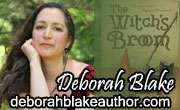Paganistan: Notes from the Secret Commonwealth
In Which One Midwest Man-in-Black Confers, Converses & Otherwise Hob-Nobs with his Fellow Hob-Men (& -Women) Concerning the Sundry Ways of the Famed but Ill-Starred Tribe of Witches.
this hwit crist he lies
If you read only one pagan novel this year, let it be Paul Kingsnorth's The Wake.
The emergence of post-apocalypse narrative in early “twenty-first” century fiction, cinema, and television is an intriguing and suggestive phenomenon, offering rich possibilities for satire, cultural critique, and reflection on direction for possible futures. (I have written previously about the genre in modern pagan fiction.)
But of course, as every pagan knows, when it comes to Apocalypse, we've already been there and done that. In human history, Ragnarok comes again and again. This is how Kingsnorth can characterize his novel, now newly released in the US and currently long-listed for the prestigious Booker Prize, as “a post-apocalyptic novel set 1000 years in the past.”
Imagine that you've lost everything: your home, your possessions, your family, your culture itself, even your gods. This is the tale that Kingsnorth tells in The Wake. The year is 1066.
Buccmaster, the novel's protagonist and narrator, is a sokeman—an independent, landed farmer—in the Fens of northeastern England's Danelaw, on the eve of England's most cataclysmic event: the long echoes of which, as Kingsnorth judiciously notes, are still to be felt in our day. A millenium after the Norman Invasion, 70% of land in England still belongs to 1% of the population. 1000 years after Hastings, you can still look at my friend David and me and say: that one's the Norman, that one's the Saxon.
But I've withheld some important information about our hero. He's pagan.
it is like my grandfather saed to me like what I saed to ecceard to these wapentac men this hwit crist he lies. it is hard to sae these things they moste be saed in thy hus only if thu is hierde the preost and the thegn and the gerefa and the wapentac they will tac thu down. but it is lic my grandfather saed before the crist cum our folcs gods was of anglish wind and water now this ingenga [inganger = foreign] god from ofer the sea this god he tacs from us what we is. there is sum of us saes my grandfather still cepan alyf the eald gods of angland efen in these times and he wolde spec to me of these things when my father was not lystnan a thrall was he to those who wolde tac from him what macd him man (Kingsnorth 23).
The language of this tragic and compelling novel is, as you can see, a time-travel English, an English entirely Anglo-Saxon, lacking French vocabulary, spelling, and punctuation: what English might have become had Hastings never happened. (I have written previously on the shape that such a language of indigenous paganism might have taken, and its importance for the contemporary pagan.)
As a boy, Buccmaster's grandfather took him to the drowned grove where the old gods once lived.
and the gods he saes the gods them selfs waits still beneath these waters for us to cum baec and when angland is in need if we call them they will cum all of them from the old holt [grove] below this fenn mere and feoht again with anglisc men agan any and heaw [hew] them down (Kingsnorth 54)
In the face of the death of his culture, Buccmaster cries out:
well my grandfather was a wise man in many things […] but of the lost gods under the mere the ealde gods who would cum again when angland called well i was callan them i was callan them from fenn and holt and they did not feoht for angland. woden thunor ing they did not cum for harald cyng for dunstan or eadberht [his sons] or odelyn [his wife] like they had not cum for all the men of sanlac. lic they had not cum to stand agan the bastard [William the Conqueror] and send him baec to the sea with the frenc hunds he bring to eat our land lic goats (Kingsnorth 55)
But Buccmaster's cry of anguish is not entirely just. For, as he himself admits, he has indeed called to the old, lost gods of England.
And then one of them speaks to him.
Paul Kingsnorth, The Wake (2015). Graywolf Press.
Comments
-
 Wednesday, 13 January 2016
Wednesday, 13 January 2016Glad to hear it, Nancy, and good reading to you. It's an honest book, emotionally difficult, and the fact that Buccmaster is no great, shining pagan hero only makes it that much more difficult.
But Kingsnorth's feel for the Old Ways rings true, and as a reader (and as a pagan) I find myself wondering whether the prophecies addressed to Buccmaster's day do not as rightly address our own as well. An amazing accomplishment.
Be true, says the god.
As a god would say. -
 Thursday, 14 January 2016
Thursday, 14 January 2016I definitely think the book speaks a warning for modern times, in the voice of the distant past. Reading between the lines, so much of it feels relevant today.
I'm only 70 pages into it so far, but so far I'm enjoying Buccmaster's gruff, abrasive personality. I find his attitude very believable in a rural farming man. Having spent most of my life in rural areas and having been a struggling farmer myself for a decade, I know how the grueling, unending work can wear away at your patience for anything that is not actively helping you get the work done, and how being unable to control so much about the results of your labor makes you seize all the tighter to control the few things you can. He might not end up being a very nice character, but so far he rings true to me.
Anyway, thanks again for pointing me at this book. I shared a link to your review on my Facebook page, and on my Facebook Author page (I'm a writer), so maybe I sent a few more eyes this way! -
Please login first in order for you to submit comments





















Thank you for this review! I bought the book and started reading it last night. Already I can tell what a masterpiece it is. I never would have heard of it without your post.